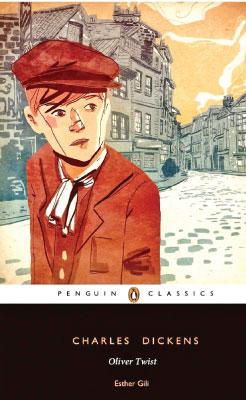
 Oliver Twist by Charles Dickens was first published as a book by Richard Bentley in London in 1839. It charts the formative years of an orphaned little boy named Oliver who is sent to live in a workhouse during the period of Industrialisation in nineteenth century England.
Oliver Twist by Charles Dickens was first published as a book by Richard Bentley in London in 1839. It charts the formative years of an orphaned little boy named Oliver who is sent to live in a workhouse during the period of Industrialisation in nineteenth century England.
Oliver faces many hardships in the workhouse and Dickens criticises the cruelty of the social system prevalent during that era through the sarcasm inherent in his tone.
Dickens says, “So they established the rule that all poor people should have the alternative (for they would compel nobody, not they) of being starved by a gradual process in the house, or by a quick one out of it.
With this view, they contracted with the waterworks to lay an unlimited supply of water, and with a corn-factor to supply periodically small quantities of oatmeal, and issued three meals of thin gruel a day, with an onion twice a week and half a roll on Sundays.
They made a great many otherwise and humane regulations . . . kindly undertook to divorce poor married people . . . instead of compelling a man to support his family, as they had, theretofore, done, took his family away from him, and made him a bachelor! There is no saying how many applicants for relief, under these last two heads, might have started up in all classes of society, if it had not been coupled with the workhouse; but the board were long-headed men, and had provided for this difficulty.
The relief was inseparable from the workhouse and the gruel, and that frightened people”.
In Oliver Twist, Dickens explores the themes of Christian charity and compassion towards the poor and less fortunate, which he also explores in his novella A Christmas Carol. Oliver Twist has been adapted into a popular stage musical titled Oliver and also a film.
Reviewed by Hannah George
